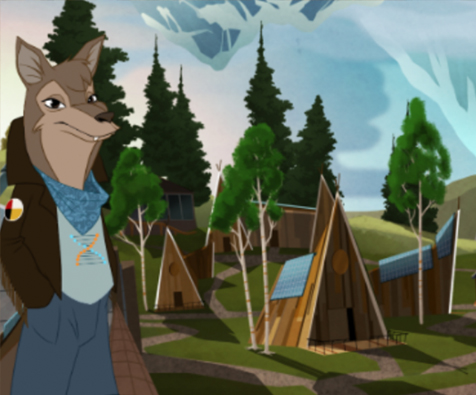Read Indigenous ways of knowing and the academy: Part 2 of 2
I had the privilege of attending a conference marking the 20th anniversary of the release of the Royal Commission on Aboriginal People (RCAP, 1996) last November. One of the participants at the Social Sciences and Humanities Research Council (SSHRC) session on research and reconciliation expressed concern about the phrase “Indigenous ways of knowing.” Why single out “Indigenous,” and why qualify human logic and comprehension with the squishy phrase “ways of knowing”? This person had spent many years thinking through these issues, working hard to improve opportunities for Indigenous peoples, but I was struck by the intensity of the concern – centred, I think, on the possibility that identifying “Indigenous ways of knowing” might prove to be another strategy to marginalize Indigenous voices and interests.
I respect this person’s concern, which was based in their lived experience. My own interest comes from a different place. I am a postdoctoral researcher, a SSHRC-Mitacs Visiting Fellow in Indigenous Research and Reconciliation. I am ‘embedded’ at SSHRC, though not employed by the agency; my views are my own and shaped with my growing knowledge community (including many associates at SSHRC). I count myself as one of SSHRC’s “critical friends.”
I am Métis and mixed European, and do not have a landed community. In coming to know my positionality and my place in the Canadian story, I depend on a materialist historical reading of the overlays between my family’s journey and the enterprise of Canada, between myself and the colonial present. This enterprise has always been commercial, territorial, cultural and inescapably intellectual, including the physical and mental structures of the academy.
For some people, Indigenous ways of knowing mean place-based knowledge, but uncertainty (or even fear) blocks any further engagement, and denies these supposedly parochial knowledges any real standing in Canadian institutions. For other people, Indigenous ways of knowing are confined to performance and craft, such as dancing at powwows, or to ‘iconic’ images of West Coast and Inuit carving. Indigenous ways of knowing have been reified and collected as Indigenous knowledge (IK) or traditional ecological knowledge (TEK). They have been, variously, depending on circumstances, greatly admired, brought in as a source of helpful but local and secondary information, or merely tolerated as stories.
I might be making straw men, but there is some truth in each of these interpretations in the sense that they reflect dominant understandings of the nature and value of Indigenous knowledges.
These understandings — based in cognitive and cultural realities bound up with colonialism — have often also been found within the research community.
But this is changing. Indigenous researchers and knowledge workers, together increasingly with allies, are finding powerful paths to enact and express Indigenous ‘space-times’ (hey, I’m a human geographer…) across multiple communities—in urban, water-based, transnational, on reserve, digital (for example check out the series and app Coyote's Crazy Smart Science Show), and even celestial contexts.
(Image used with permission from Coyote's Crazy Smart Science Show. Created and produced by Loretta Todd, art work by Dedos Nelson Garcia)
Governments, universities, funding agencies like SSHRC, all need to keep up. I keenly hope that this Congress, a face-to-face gathering on the Indigenous Lands of Tkaronto, gets us running in the right direction.

